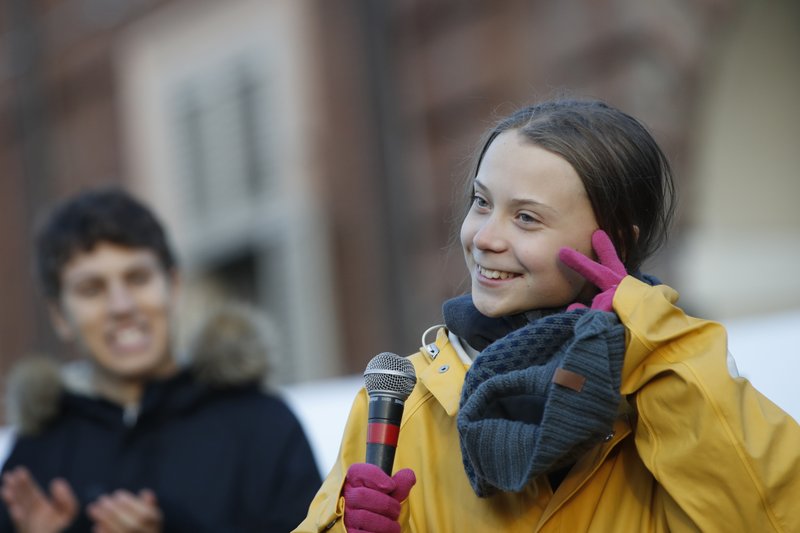President Donald Trump’s recent tweet about teenage climate change activist, Greta Thunberg, has sparked a lot of criticism and outrage, but it’s not the first time an adult in a position of power has targeted a minor in the media. The sixteen-year-old, who is a passionate and powerful environmentalist, was declared Time’s Person of the Year. Shortly after this was announced, Trump tweeted that her winning the honor was “So ridiculous” and that she should “work on her anger management,” telling the teen, to “Chill Greta, Chill!” Of course, being a minor doesn’t make the opinions of young, public activists like Thunberg immune from criticism. However, a child or teen being in the public eye does not make them fair game for mockery or bullying, especially when it is done for an adult’s own personal or political motives. Frequently, adults use children as a way to get at another intended target, as though it is a lesser evil to attack a minor rather than an adult, cause, or institution.
Not only have politicians targeted young activists, but more often than not, the children of political adversaries are targeted as a way of attacking their parents. In 2014, Congresswoman Elizabeth Lauten wrote a harsh tweet about Sasha and Malia Obamas’ attires and expressions during the turkey pardoning ceremony. Lauten told the two teenage girls to “dress like they deserve respect, not a spot at a bar,” and that they should “try showing a little class,” before throwing a not-so-subtle jab at her real targets: Barack and Michelle Obama. Her real intention was to use the girls to call out the Obamas for “[not] respect[ing] their positions very much, or the country for that matter.” The girls were just exhibiting what most know as regular teen behavior at a long, boring, and utterly pointless event, and their laughable teenage eye rolling was turned into a political weapon. A similar scenario occurred in 2005 when the children of Chief Justice John Roberts were ridiculed for their outfits by writer and fashion editor Robin Givhan. Since Jack and Josie Roberts were only four and five at the time, they were clearly not choosing their own Easter egg-colored, 50’s-like garb. However, Givhan’s article used the children and their clothes to paint their conservative-leaning parents as old fashioned and snobbish. President Trump’s 13-year-old son, Barron, has been subjected to very harsh derision since his father took office, especially on social media outfits like Twitter. To condemn the Trump administration policy that separated children from parents at the Mexican border, actor Peter Fonda tweeted: “We should rip Barron Trump from his mother’s arms and put him in a cage with pedophiles.” This is a horrifying message about an innocent child that went way too far in an attempt to get a political message across that had absolutely nothing to do with the youngest Trump.
Publicly insulting children and teens as a way of achieving some other political or personal purpose is an unacceptable practice that has become all too common, especially with the rise of social media. Taking on a minor instead of an organization, corporation, or public figure is an easier and less intimidating alternative to taking on a more powerful target, but that does not justify the practice. In fact, it’s possibly more condemnable to insult a child than a powerful target, particularly when there are ulterior motives or a larger aim. Finally, in nearly every school in America, there are large colorful posters reading “STOP BULLYING” and assemblies where students are supposed to learn to be more compassionate and accepting towards each other. However, adults constantly abandon these messages that they preach to youth in pursuit of their own selfish motives. In a society where this sort of behavior has become nearly commonplace, how can we demand that children exhibit mature traits like compassion when adults often don’t? Can children really learn to be kind if adults often are not kind to children in public settings?

